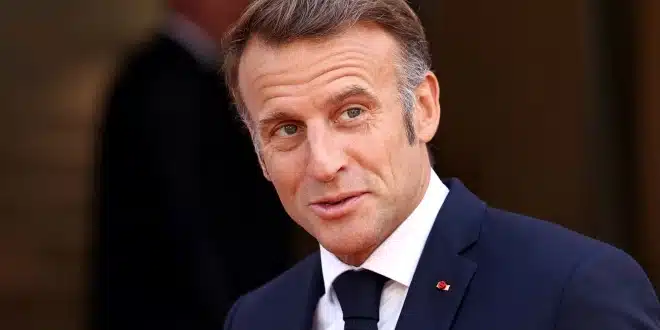French President Emmanuel Macron has set off a new wave of international debate by formally backing recognition of a Palestinian state. His decision, echoed by several Western allies, has drawn sharp criticism from Israel and the United States while reviving calls for a two-state solution as the path to ending the war in Gaza.
In a letter addressed to Israeli Prime Minister Benjamin Netanyahu, Macron emphasized that France’s stance was not only about Palestinian rights but also about Israel’s long-term security. “Our determination to see the Palestinian people have their own state is rooted in our conviction that lasting peace is essential to the security of the state of Israel,” he wrote. Macron added that France’s position reflects “outrage at the appalling humanitarian disaster in Gaza, for which there can be no justification.”
Recognition Efforts Gain Momentum
France is not acting alone. The United Kingdom, Canada, Australia, and Malta have all pledged to announce their recognition of Palestine during the United Nations General Assembly in New York, which opens on September 23. Other nations—including New Zealand, Finland, and Portugal—are weighing similar steps. More than 140 countries worldwide already recognize a Palestinian state, but the entry of major Western powers would mark a significant shift in the balance of global diplomacy.
These moves come as Gaza faces unprecedented devastation. Israel declared Gaza City a combat zone last week, with the Palestinian death toll rising above 63,000 since the conflict began on October 7, 2023, following Hamas’s surprise attack on Israel. According to U.N. agencies, more than 2 million residents are displaced, much of Gaza lies in ruins, and famine has been reported in its largest urban areas.
Clashing Responses from Israel and the U.S.
Netanyahu has firmly rejected any recognition of Palestinian statehood, insisting instead on intensifying Israel’s military campaign in Gaza. He accused Macron of “fueling the fire of antisemitism” through his calls for Palestinian sovereignty, remarks the French president condemned as “abject.”
The United States has also expressed unease. Charles Kushner, the U.S. ambassador to France, warned in a letter that recognition “emboldens extremists, fuels violence, and endangers Jewish life in France.” His comments prompted France’s foreign ministry to summon his deputy in Paris to formally convey its disapproval.
These reactions highlight how symbolic gestures can carry real political weight. As Pascal Boniface, director of the Institute for International and Strategic Relations in Paris, explained, “There is some kind of race against time between the diplomatic path, with the two-state solution back at the heart of the debate, and the situation on the ground in Gaza, which is every day making this two-state solution a little more complicated or impossible.”
Symbolism and Practical Impact
Supporters of Palestinian statehood argue that the timing is critical. Some were disappointed that Western leaders plan to wait until September’s General Assembly to formalize recognition, fearing that Gaza will endure even greater destruction by then. Political analyst Muhammad Shehada noted that while recognition may not change the immediate situation—“the world will be the same the day after”—it still increases diplomatic pressure on Israel.
According to Shehada, such recognition challenges Netanyahu’s narrative that mass displacement or depopulation is the only way forward. Instead, it signals that major powers see a negotiated two-state solution as the only viable outcome. It also sends a message to Palestinians that diplomacy, rather than violence, can deliver tangible gains.
Shifting Dynamics in the Arab World
France’s initiative has intersected with broader regional diplomacy. At a U.N. conference in July co-hosted by France and Saudi Arabia, all 22 Arab League nations issued an unprecedented statement condemning Hamas’s attacks on civilians. The New York Declaration called on Hamas to relinquish control of Gaza and transfer authority to the Palestinian Authority (PA).
This marks a potential turning point. By strengthening the PA’s role, the international community hopes to bolster moderate Palestinian leadership and weaken Hamas’s influence. “Creating a diplomatic track that provides Palestinians with an alternative to violence sends a message that engagement will pay off and will lead to a Palestinian state, whereas violence will not take you anywhere,” Shehada said.
The Road Ahead
The Palestinian Authority, headquartered in the West Bank, envisions an independent state across the West Bank, Gaza, and East Jerusalem—territories occupied by Israel since the 1967 Middle East war. But Hamas’s takeover of Gaza in 2007 fractured Palestinian governance and left the PA overseeing only limited areas of the West Bank.
Macron’s initiative, combined with support from other Western nations, may help reframe the international conversation around Palestinian statehood. Yet, the reality on the ground—ongoing war, displacement, and deepening humanitarian crisis—makes the path toward a two-state solution more difficult each day. Whether symbolic recognition can be converted into concrete steps toward peace will depend on sustained diplomatic pressure and the willingness of all parties to move beyond entrenched positions.


